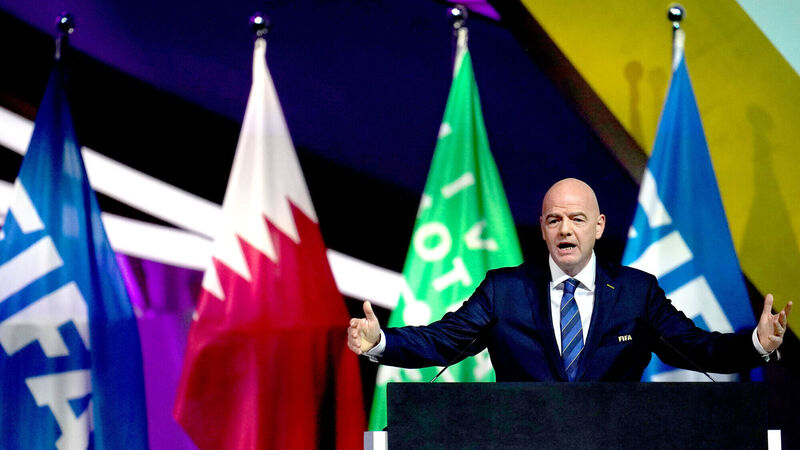World Cups in multiple places cause CO2 hike, UCC research shows

FIFA and UEFA’s decisions to co-host tournaments across different countries are causing participating nations’ teams to travel further distances to for matches, leading to higher emissions.
The decision to host football World Cups and European Championships over multiple countries is increasing CO2 emissions, according to University College Cork (UCC). The research is led by Blarney-born Irish professional footballer and economics graduate, Conor McCarthy.
The study, which analysed more than 30 years of data from World Cups and from European Championships, found that the decisions made by the governing authorities, Fifa and Uefa, in how tournaments are hosted and scheduled are contributing substantially to CO2 emissions.
The study, which analysed data gathered from 895 football matches played at World Cups and Euros between June 1990 and July 2024, follows the announcement that Saudi Arabia is to host the 2034 FIFA World Cup, and comes ahead of the qualifiying draw for the 2026 World Cup, which is set to be hosted in the US, Mexico, and Canada.
While there is increased awareness among sporting organisations of their responsibility to be sustainable, actions to reduce the environmental impact of tournaments have not been sufficient and are counterproductive in many cases, the study found.
Fifa’s and Uefa’s decisions to co-host tournaments across different countries are forcing participating teams to travel further for matches, thereby increasing emissions.
Furthermore, the decisions around the scheduling of matches are also imposing greater travel demands on teams.
The study estimated the CO2 emissions caused by the movement of teams, coaches, and other staff members.
Unsurprisingly, tournaments held in geographically large countries, like Brazil, which hosted the 2014 World Cup, or spread across multiple locations, such as the 2020 UEFA European Championship, generated significantly higher emissions.
The data shows that tournaments in locations that are further from Western Europe, such as Korea, Japan, South Africa and the US, and those in larger countries, such as Russia and Brazil, or which span the European continent, required greater travel by qualifying teams and thus resulted in higher travel emissions.
The tournament with the lowest internal emissions was the 2022 World Cup in Qatar, due to its compact nature, where all stadiums were close to each other.
Mr McCarthy, an economics and commerce graduate from UCC who plays professionally for Barnsley FC, said that the study’s findings would, hopefully, give organisations such as Fifa and Uefa food for thought, in terms of how they organise their tournaments.
“Hosting group stages in single cities or regions could drastically cut the carbon emissions caused by the World Cup and Euros,” he said.
“We need only look at how the Champions League was concluded in the middle of the pandemic lockdown of 2020 for an example of how single-city settings can be used to host tournaments.
“We believe sporting bodies need to reconsider their policy of multi-nation hosts and focus on more centralised locations for World Cups and Euros.
“In the meantime, while the decision has already been made on holding the 2026 World Cup across Canada, the US, and Mexico, more considered scheduling of games can reduce the tournament’s significant carbon emissions,” Mr McCarthy said.







 App?
App?


